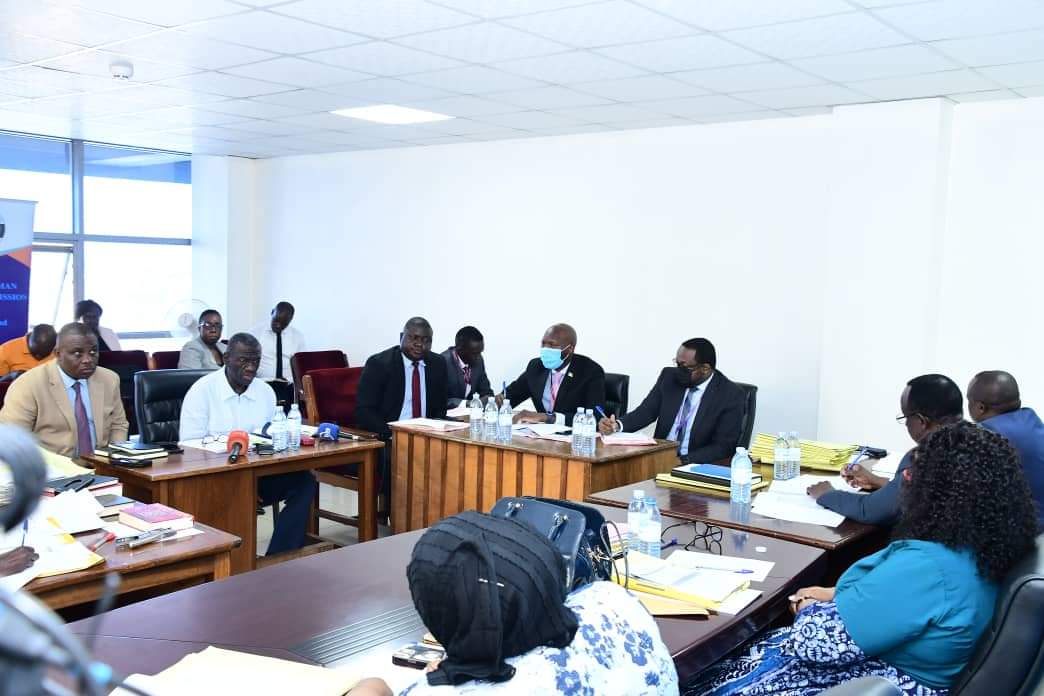By Kerry Howard Mwesigwa
Retired Colonel Dr. Kizza Besigye has made an appearance before the Uganda Human Rights Commission (UHRC) to address a case filed in 2016. This case accuses the police, led by the late former Assistant Inspector General of Police (AIGP) Felix Kaweesi, of engaging in illegal arrests and violating the freedom of expression and assembly, among other charges. Retired Major General Mugisha Muntu and Ingrid Turinawe were among the witnesses who testified before the commission, which is chaired by Mariam Wangadya, the Chairperson of the UHRC.
Dr. Kizza Besigye, a former presidential candidate, presented himself before the tribunal to discuss the alleged violations of his rights during the 2016 elections. The tribunal, which consisted of three commissioners and was chaired by Mariam Wangadya, examined the details of the case. The accusations made relate to what Amnesty International has described as the violation of human rights of the leaders of the Forum for Democratic Change (FDC) and the undermining of their party’s ability to legally contest the results of the February 18 elections.
During his appearance, Besigye raised concerns about the repeated arrests of both himself and his party colleagues and supporters by the security forces. He also highlighted incidents where security forces surrounded his residence and conducted a raid on the FDC’s main office in Kampala, actions that have been consistently denied by the government. Besigye recounted the events that unfolded following the 2016 General elections, in which he, along with three senior party officials including the then-president of the party, Mugisha Muntu, Ingrid Turinawe, and Wasswa Birigwa, were apprehended by the police, who were under the command of the late AIP Andrew Felix Kaweesi. Subsequently, they were taken into custody at Nagalama police station.
Besigye expressed regret that his arrest prevented him from filing an election petition, a decision he now laments as he believes it would have allowed him to present evidence that could have overturned the results of the 2016 presidential election. Consequently, he maintains that he does not recognize President Museveni as the duly elected president of Uganda. Besigye emphasized that he still possesses evidence supporting his claim.
In light of the ongoing alleged violations of his rights, which include torture, loss of income, missed opportunities, and the closure of FDC party offices, Besigye is seeking compensation from the government. The case before the UHRC provides an opportunity to address these violations and pursue justice.
The ruling of the UHRC on this matter will have significant ramifications for the protection of human rights and the accountability of the security forces in Uganda. The outcome will determine whether violations occurred and may lead to compensation for Besigye and the affected individuals. Moreover, the case underscores the broader issue of safeguarding democratic processes and ensuring the right to challenge election results through legal means.















